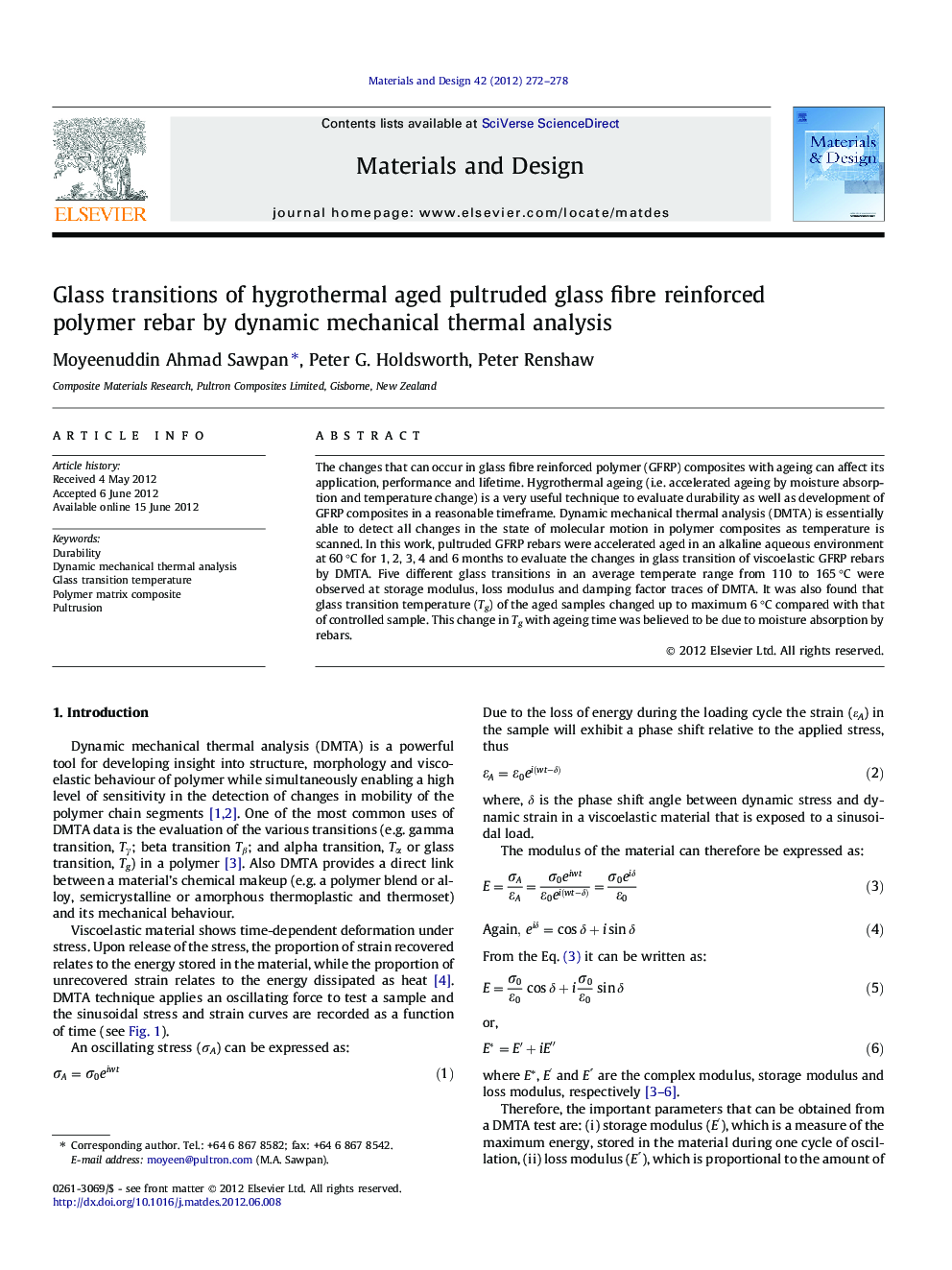| Article ID | Journal | Published Year | Pages | File Type |
|---|---|---|---|---|
| 830480 | Materials & Design (1980-2015) | 2012 | 7 Pages |
The changes that can occur in glass fibre reinforced polymer (GFRP) composites with ageing can affect its application, performance and lifetime. Hygrothermal ageing (i.e. accelerated ageing by moisture absorption and temperature change) is a very useful technique to evaluate durability as well as development of GFRP composites in a reasonable timeframe. Dynamic mechanical thermal analysis (DMTA) is essentially able to detect all changes in the state of molecular motion in polymer composites as temperature is scanned. In this work, pultruded GFRP rebars were accelerated aged in an alkaline aqueous environment at 60 °C for 1, 2, 3, 4 and 6 months to evaluate the changes in glass transition of viscoelastic GFRP rebars by DMTA. Five different glass transitions in an average temperate range from 110 to 165 °C were observed at storage modulus, loss modulus and damping factor traces of DMTA. It was also found that glass transition temperature (Tg) of the aged samples changed up to maximum 6 °C compared with that of controlled sample. This change in Tg with ageing time was believed to be due to moisture absorption by rebars.
► Successful quantification of changes in glass transition of aged GFRP by DMTA. ► The most conservative method is to take Tg as onset point of loss modulus curve. ► The least conservative method is to take Tg as peak of tan δ curve. ► Tg values (maximum and minimum) were found to be varied by about 55 °C. ► No evidence of degradation of GFRP rebars after 6 months hygrothermal ageing.
